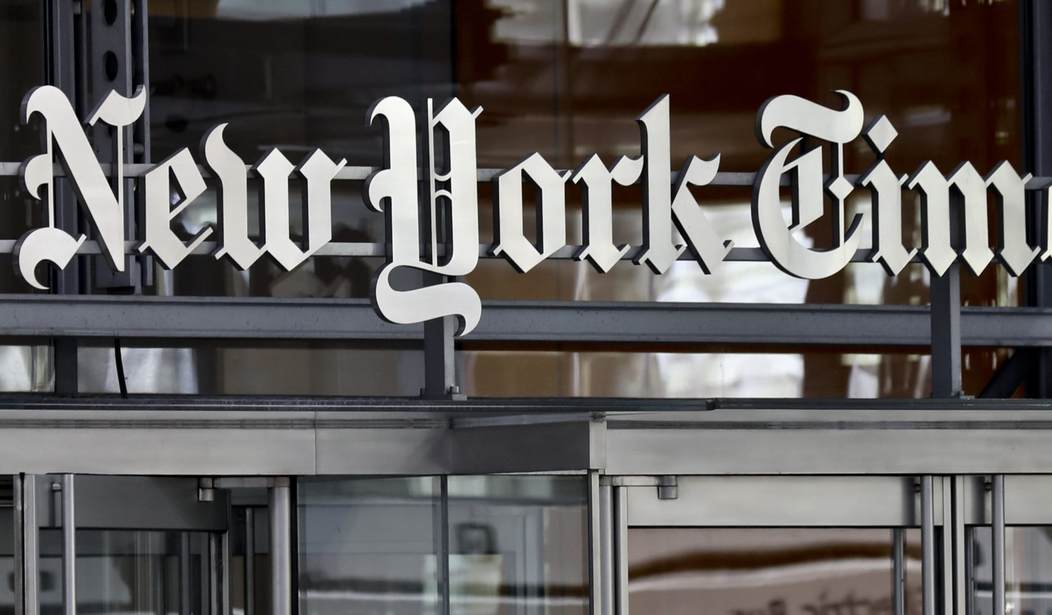On Thursday, Charles Blow, one of the more aggressive columnists at The New York Times, explained President Donald Trump’s psychology in a way that revealed his own animus toward the president.
Blow mentioned the tragic case of the Central Park Five, four black men and one Hispanic man convicted of a brutal rape and murder in 1989 who were exonerated in 2002 and awarded a settlement of $41 million from New York City in 2014. The Times writer quoted an ad Trump paid for a few days after the attack, in which Trump declared, “BRING BACK THE DEATH PENALTY. BRING BACK OUR POLICE!”
In that ad, the future president declared his decision to “hate these muggers and murderers.”
“Mayor Koch has stated that hate and rancor should be removed from our hearts. I do not think so. I want to hate these muggers and murderers,” Trump wrote. “They should be forced to suffer and, when they kill, they should be executed for their crimes.”
For emphasis, he added, “Yes, Mayor Koch, I want to hate these murderers and I always will. I am not looking to psychoanalyze or understand them, I am looking to punish them.”
Trump has not taken back his advocacy for the death penalty and his assurance that these men were guilty. Even after the 2014 settlement, Trump insisted the five were guilty, and his unwillingness to reconsider became a minor issue in the 2016 presidential election.
Charles Blow was right to criticize Trump for these stances in his New York Times op-ed Thursday, but he went too far in choosing to interpret the president’s views and statements using this event as a prism.
“That to me is the thing with this man: He wants to hate,” Blow wrote. “When Trump feels what he believes is a righteous indignation, his default position is hatred. Anyone who draws his ire, anyone whom he feels attacked by or offended by, anyone who has the nerve to stand up for himself or herself and tell him he’s wrong, he wants to hate, and does so.”
The Times writer declared, “This hateful spirit envelopes him, consumes him and animates him.”
Blow accused the president of “hating” people, one by one. “He hates women …. He hates black people …. He hates immigrants …. He hates Muslims ….”
“He always disguises his hatred, often as a veneration and defense of his base, the flag, law enforcement or the military. He hijacks their valor to advance his personal hatred,” Blow insisted.
Then came the fundamentally important confession. Blow condemned Trump’s alleged “hate,” but he himself was more than willing to fuel an animus against the president that could plausibly be defined as hate.
“So I remember that. I center that. I hear ‘I want to hate’ every time I hear him speak,” Blow wrote (emphasis added). “And I draw strength from the fact that I’m not fighting for or against a political party; I’m fighting hatred itself, as personified by the man who occupies the presidency. That is my spine stiffener.”
Trump is “hatred itself”? The Times writer just confessed to deconstructing the president’s every statement, assuming it comes from hate, and twisting his words if necessary to make them seem more hateful. Sound familiar?
Blow’s confession echoes the willing reinterpretation and hatred described in C.S. Lewis’s “Mere Christianity.”
Suppose one reads a story of filthy atrocities in the paper. Then suppose that something turns up suggesting that the story might not be quite true, or not quite so bad as it was made out. Is one’s first feeling, “Thank God, even they aren’t quite so bad as that,” or is it a feeling of disappointment, and even a determination to cling to the first story for the sheer pleasure of thinking your enemies are as bad as possible? If it is the second then it is, I am afraid, the first step in a process which, if followed to the end, will make us into devils.
You see, one is beginning to wish that black was a little blacker. If we give that wish its head, later on we shall wish to see grey as black, and then to see white itself as black. Finally we shall insist on seeing everything — God and our friends and ourselves included — as bad, and not be able to stop doing it: we shall be fixed for ever in a universe of pure hatred.
America’s current climate of extreme polarization and its post-truth culture only render more tempting this psychology of wishful reinterpretation in the service of hating one’s perceived enemies.
Blow hears Trump say “Make America Great Again,” and — applying as he just confessed, his prism of hate interpretation — he hears “I want to hate, and America’s greatness is my excuse to hate.” No matter how helpful Trump’s policies, Blow will always reinterpret the president’s words and actions as stemming from hatred.
Any conservatives attuned to the “hate group” designations of the Southern Poverty Law Center (SPLC) will instinctively grasp the brutal power of this willful reinterpretation and hatred.
In his confession, Blow helped explain the media’s stubborn — occasionally ridiculous (remember Koi-gate?) — animus against Trump. If you start from the perspective that every word from the president really boils down to “I want to hate,” then you yourself will want to hate him a little more. With every word, your own hatred will grow into an all-consuming habit of anger and enmity.
Charles Blow confessed that he wants to hate Donald Trump, and the media is following this example. If the liberals do not stop themselves, C.S. Lewis would suggest will ultimately become devils.









Join the conversation as a VIP Member